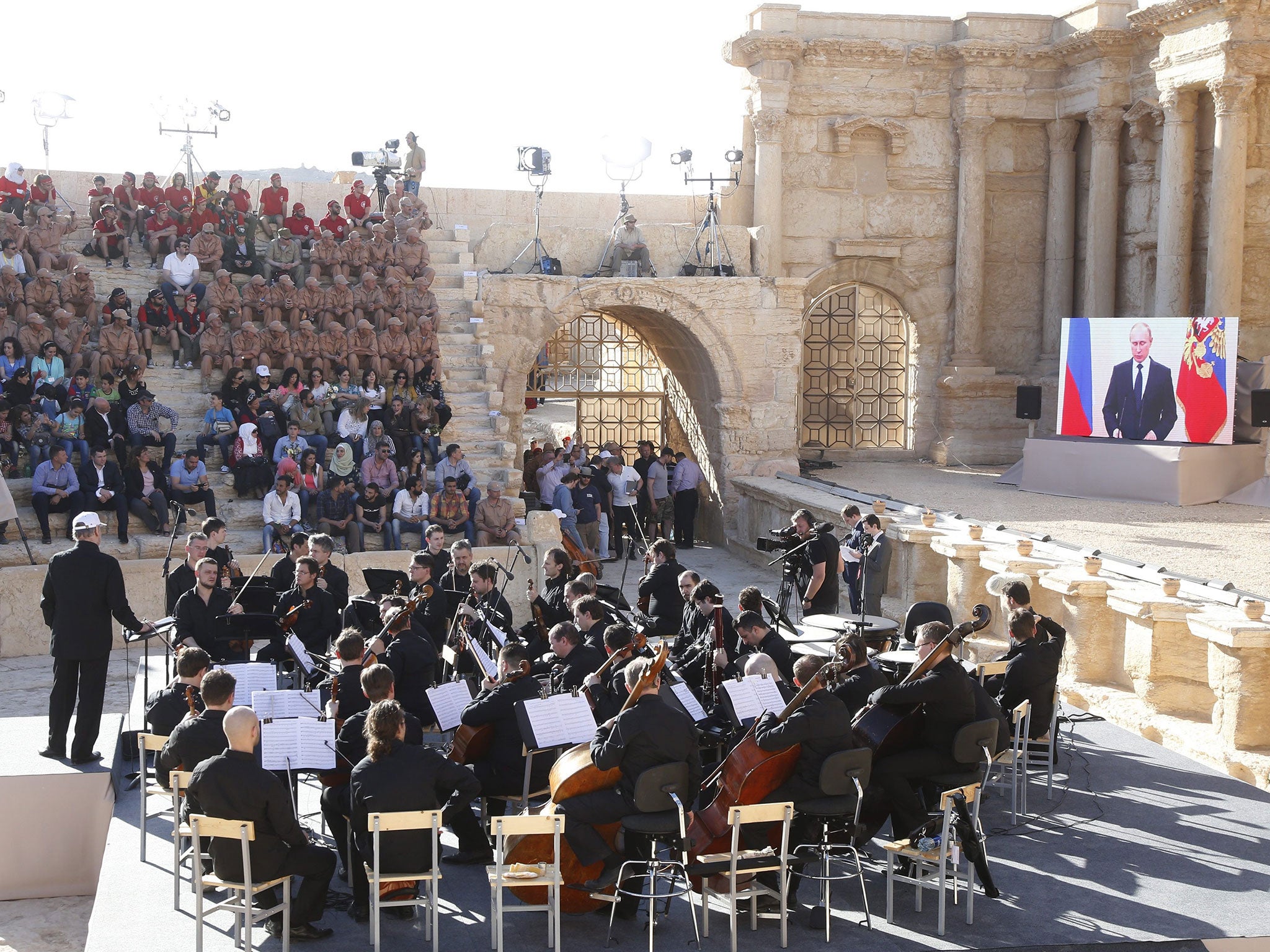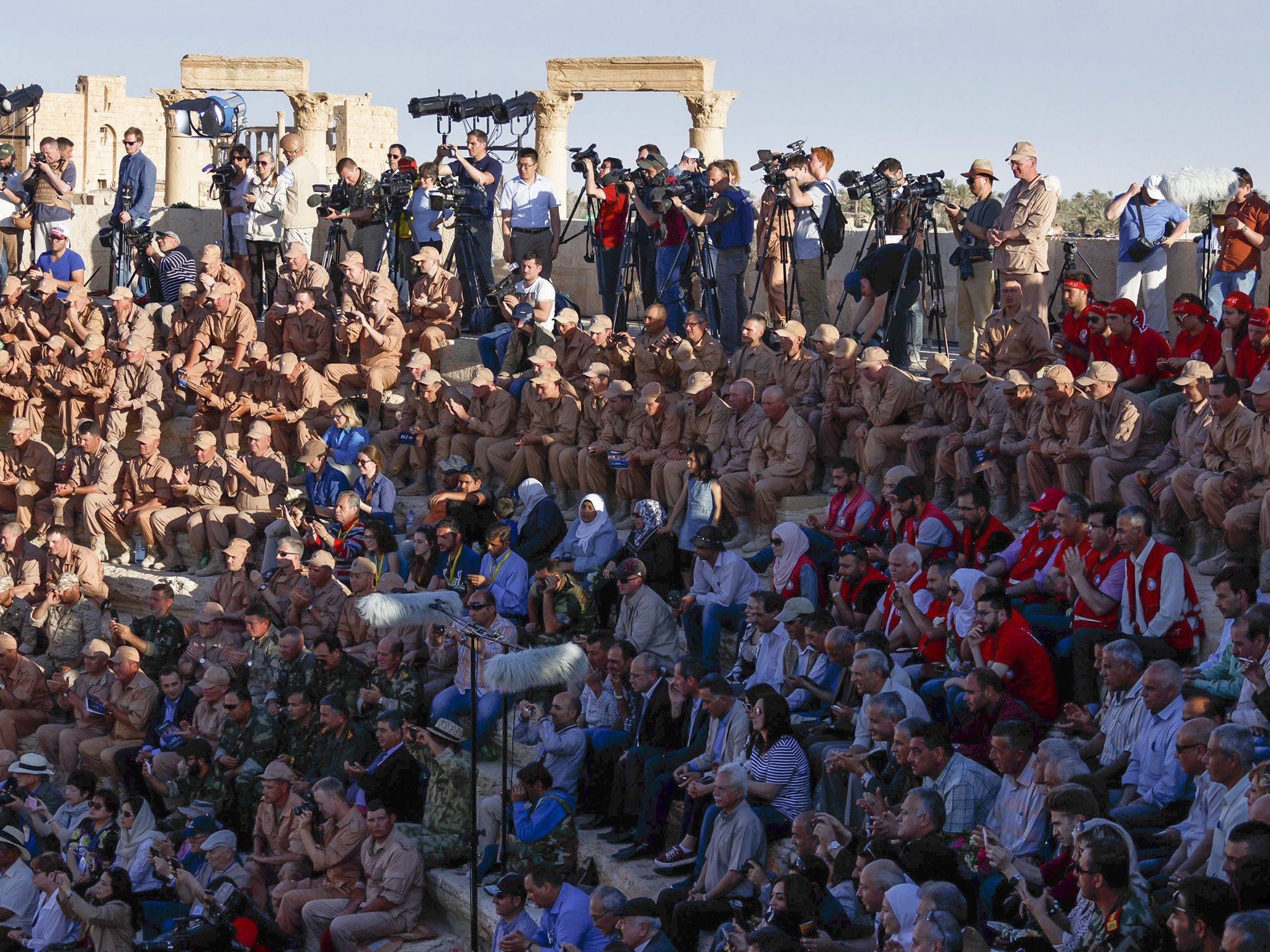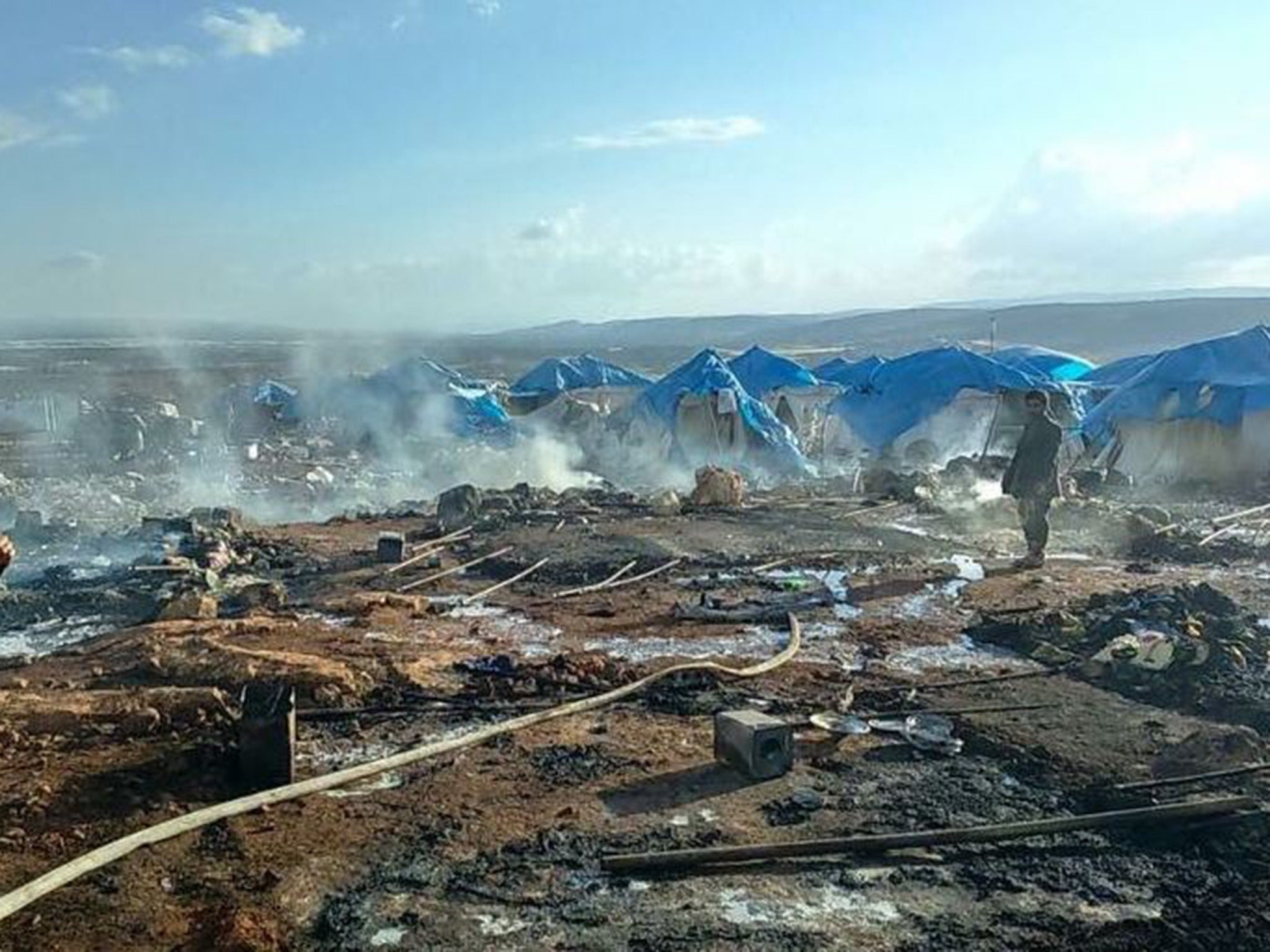Russia stages classical concert in Palmyra as Vladimir Putin praises 'humanitarian act' in Syria
The performance came amid allegations of war crimes as dozens of refugees were killed by an air strike
Your support helps us to tell the story
From reproductive rights to climate change to Big Tech, The Independent is on the ground when the story is developing. Whether it's investigating the financials of Elon Musk's pro-Trump PAC or producing our latest documentary, 'The A Word', which shines a light on the American women fighting for reproductive rights, we know how important it is to parse out the facts from the messaging.
At such a critical moment in US history, we need reporters on the ground. Your donation allows us to keep sending journalists to speak to both sides of the story.
The Independent is trusted by Americans across the entire political spectrum. And unlike many other quality news outlets, we choose not to lock Americans out of our reporting and analysis with paywalls. We believe quality journalism should be available to everyone, paid for by those who can afford it.
Your support makes all the difference.A world-renowned orchestra has played a concert in the ruins of Palmyra as Russia put on a triumphant display for servicemen, officials and journalists a month after Isis was driven from the city.
The concert was staged in a Roman amphitheatre that was used as a backdrop for the mass execution of 25 prisoners just months before.
Vladimir Putin watched via video link as one of his supporters, Valery Gergiev, conducted St Petersburg’s Mariinsky Symphony Orchestra in a performance shown live on Russian television.

In opening remarks, Mr Gergiev told the audience: “We protest against the barbarians who destroyed monuments of world culture."
In a separate address broadcast to the crowd, Mr Putin called the concert an “amazing humanitarian act”, adding: "I see it as a sign of gratitude, of remembrance, of hope."
Another of his allies, cellist Sergei Roldugin, played a solo in the concert as a scandal continues to rage over his appearance in the Panama Papers leak.
Thursday’s concert came amid accusations that the Syrian regime made a deal with Isis to hand back the symbolic city, as well as continued civilian deaths in air strikes blamed on Russia’s ally Bashar al-Assad.
Called “A Prayer for Palmyra”, it was part of a concerted PR effort by Russian officials, who invited journalists to witness the signing of a peace agreement in Hama province.

Camera crews arrived to see a crowd gathered in Kawkab’s main square waving photos of Assad with hearts on them and chanting “Allah, Bashar al Assad and Syria forever”.
A man said to be the village’s sheikh then signed a truce with government forces and a group of masked young men said to be rebels handed over guns in what officials claimed was a formal surrender.
It was impossible to verify what group, if any, the men were from and a Sky News correspondent present likened the signings to a “scene from George Orwell's 1984”.
Mr Putin launched Russia's intervention in support of the Syrian regime in September, insisting intensive air strikes would only target "terrorists" despite mounting evidence of civilian deaths.
As strains of Bach and Prokofiev rang out in Palmyra, there were fresh accusations of possible war crimes by the Syrian government, following an air strike that killed at least 28 people at the Sarmada refugee camp.
Images of the aftermath of the bombing showed tents burned to the ground, charred bodies, and bloodied women and children being loaded on to a lorry.

It was not immediately clear who carried out the attack on the camp in Idlib province, where al-Qaeda’s Jabhat al-Nusra group is among the rebel groups holding territory.
Around 2,000 internally displaced people had taken shelter there from the fighting in nearby Aleppo and Hama provinces over the past year.
The White House called the strike “indefensible” and said there was ”no justifiable excuse“ to target civilians who had already fled their homes from violence.
The US-led coalition said it had no aircraft operating in the area but Syrian and Russian forces also denied involvement.
Zeid Ra'ad al Hussein, the UN High Commissioner for Human Rights said the attacks were almost certainly a deliberate war crime, adding: ”Initial reports suggest the attacks were carried out by Syrian Government aircraft, but this remains to be verified.“
But the Syrian air force said there was “no truth” in reports it had targeted the camp and Russian military spokesperson Igor Konashenkov said no Russian aircraft or drones had overflown the site.
He turned suspicion to Jabhat al-Nusra, saying they could have deliberately or accidentally shelled the camp during battles, although there are no major frontlines nearby.
The “cessation of hostilities” agreed in February has disintegrated in parts of Syria, with hundreds of civilians killed in weeks of shelling by regime forces and rebel groups in Aleppo and a double suicide bombing killing at least 10 people in Homs.
The atrocity was blamed on Isis, which has carried out similar attacks in the area while battling to control the Shaer gas field.
As a 48-hour truce largely held in Aleppo city on Friday, the Islamist Jaysh al-Fatah rebel alliance launched an assault on a government-held village to the south.
Additional reporting by agencies

Join our commenting forum
Join thought-provoking conversations, follow other Independent readers and see their replies
Comments